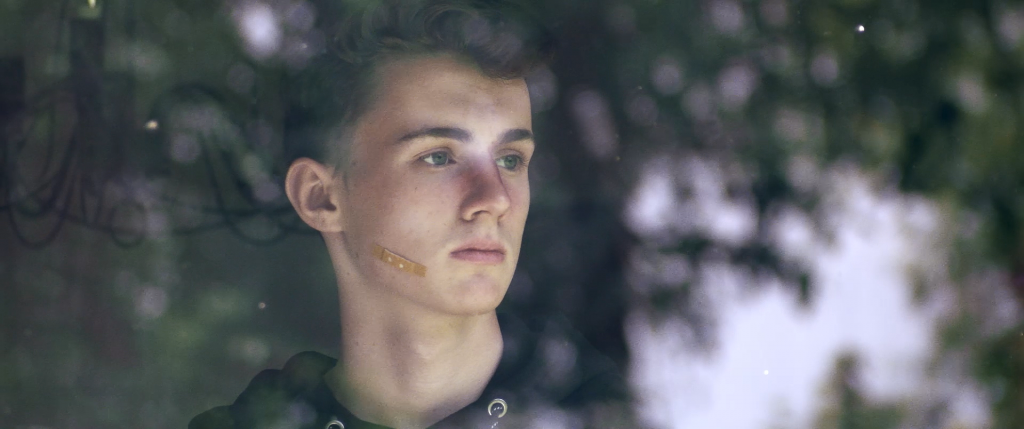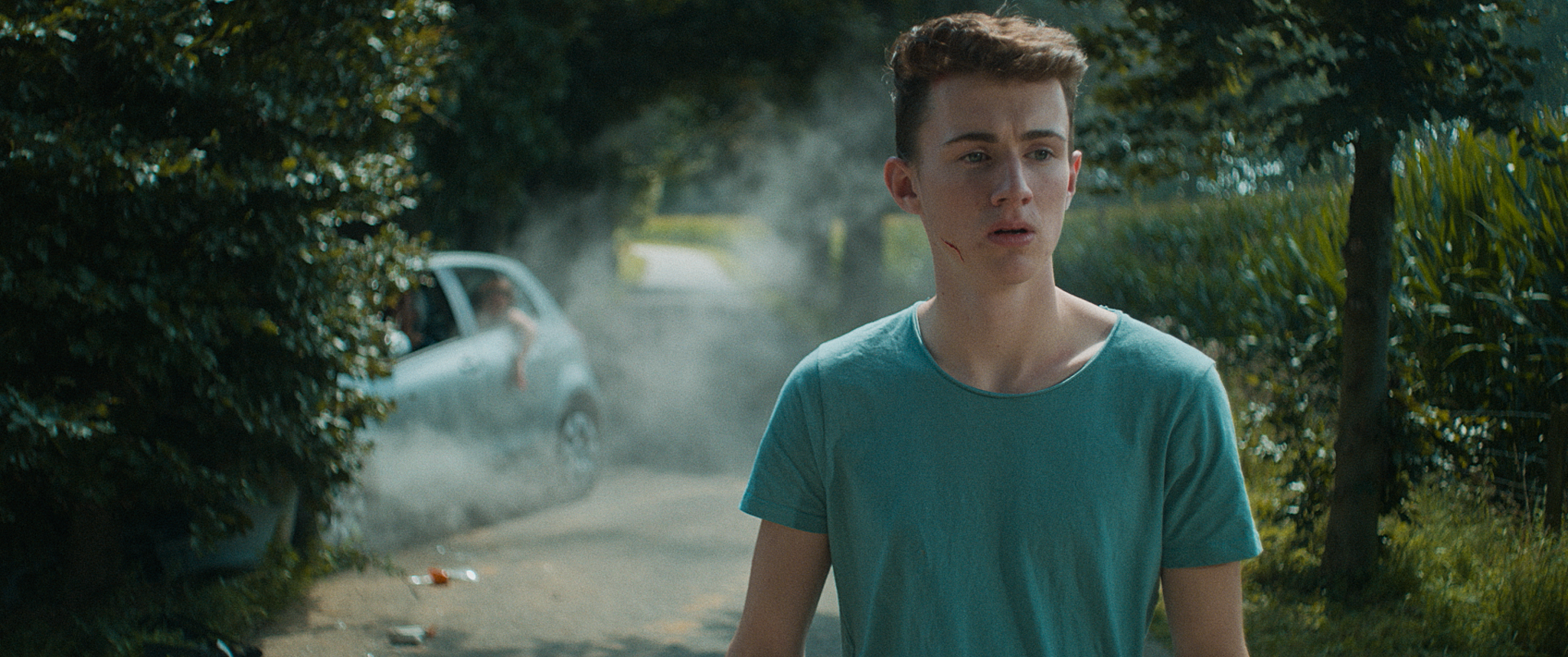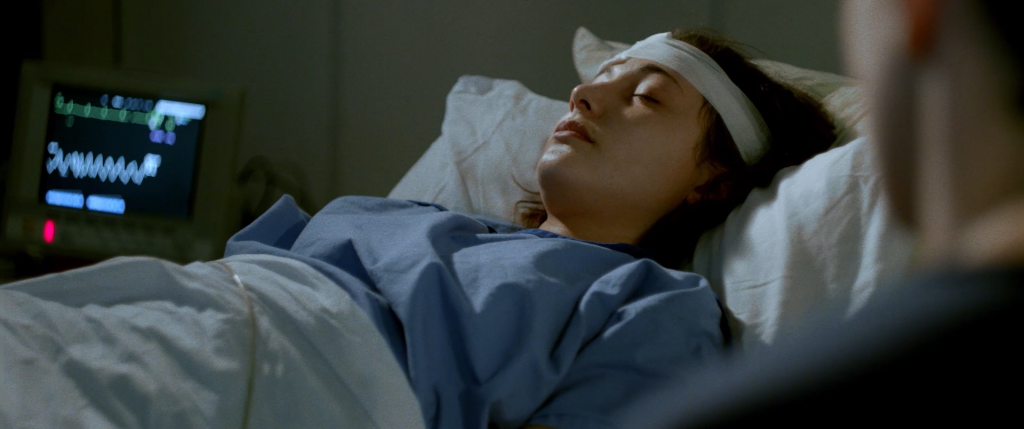
Case Study: Stille Storm
Filmmaker Guido Coppis talks about his film.
Geplaatst op 19 maart 2018Three years ago, when Guido was 16, he won the EJFF for best student film and Kunstbende Limburg for his short film Crown. His next short film IJzer In Mijn Aderen (Iron in my Veins) won the Special Jury Prize on the Euregion Film Festival, was nominated for best film on the same festival and for Best young director on the Birmingham Film Festival.
Now, at the age of 19, Guido has already made 14 short films. Juries praised his own style, as young as he is. His narratives do not follow the ‘normal’ route, he usually starts somewhere in a normal scene and thus gives the audience the power of fantasy to fill in the missing elements, so the audience can experience their own story. A character can say more without saying anything. “Guido is a unique movie talent, who develops fast”, says veteran director Paul Ruven. Most recently, Guido won the award for Best New Filmaker on the Limburg Film Festival for his 50 minute film Silent Storm.
Silent Storm is part of the Official Competition of the Euregion Film Festival 2018, and we spoke to him about his film.
” Leaving something to chance is the worst thing you can do in my experience.”

How did the for this film idea come to you?
“I’ve been asked this question a lot, and I have no idea. Filmmaking, writing is a natural process for me, I can never recall when I an idea comes to me. It just does, it’s hard to explain.”
What was the process of writing the script like?
“It took about 5 months I think, until I got to the final draft. The co-producer Paul Ruven was a very helpful coach in giving the script more focus, and giving the characters more depth on paper. In total the script had around 20 drafts, haha. Of course the script changed during shooting, not a lot though. Most of the time it had to do with the details, details that, of course, matter.”
How did you prepare for the production?
“I’m very precise in my preparation. My script is like a child’s drawing; drawings and notes everywhere, it’s not like I really look at what notes I made, it’s to get the entire picture in my head. When we start shooting, I’ve played it in my head a thousand times already, so I have a solution and answer for anything that I encounter during shooting. That way I don’t encounter anything that I can’t handle during shooting and I never get anything I don’t want. I hate it if someone says: “We’ll see on set”. I think it’s a stupid risk to be honest, as long as you have a plan in your head, you can change it anyway you like on set. But at least you always have a back-up, and you don’t leave anything to chance. Leaving something to chance is the worst thing you can do in my experience. Preparation isn’t just important for the director though, it essential for every single person on set I think. If somebody hasn’t prepared for his or her function or role, or doesn’t take it very seriously, it always leads to problems, and usually, somebody else has to solve those problems. I find that very annoying and unprofessional, especially since the film and the hard work of the cast and crew that work on it, can start to suffer under those problems.”

How did you handle the editing process?
Ayse Remmler was the editor for this film. We did delete quite some scenes to bring the film more in ‘balance’ and to make the story flow better, obvious though. I think this is the best time I’ve had in the editing ever. Simply because I really felt I had the time to tell my story. I often find short films to be confining and limiting because you don’t really have a lot of time build a character. Especially with my style of filming, I like to observe my characters, I feel you really get to know them if you give your audience the time to stare at them. Observe them, look into to their eyes. I did that with my previous work, I found a way to do it, but I still felt it wasn’t enough, I needed more time and space. So with the length of this film, 50 minutes, I could really do that. It was great.
And how did you work with sound and music?
The music for this film was composed by Tjeerd Nijhof, I’ve worked with Tjeerd many, many times now, and he’s just amazing in what it does. He understands what I want to tell in the film, and most importantly he understands the vibe and mood of film, which is super valuable. A nice detail is that the ‘end song’ was written and performed by the lead actor of the film, Benjamin Peeters.
Then there is the sound design, which was done by Mattijn Willems. He did a brilliant job with it. I wanted to see what we could with the sound design to ‘lock’ our main character in his own internal world, just like we did visually. The way that he did this, and with remarkable precision and skill, is something I am also very happy with.

What festival distribution did you have?
So far Silent Storm won the award for ‘Best New Filmmaker’. Which is great. We choose carefully which festivals we want to send the film to.
Do you have any tips for directors?
Well, most importantly I think that directors should find their own way of working, what works best for them. I don’t think there is a specific way you need to direct, I think there is always a way you could direct. So find you own style of working. And last but not least, I’ve learned that it’s important to listen to somebody’s feedback, but you never need to agree with it. Often when you try something new a lot of people will not like it, which is fine. But it doesn’t mean that what you’re doing is bad of some sorts, it’s just different of what a lot of people have seen. And often, when people see things that they’re unfamiliar with or do not know, they dislike it. When I started film making a couple of years ago a lot of people didn’t like my style, but now, slowly and steadily, people can start to appreciate it. So give it time and keep doing in what you believe in, not in what other people think you need to do. That’s the worst possible thing you can do, I think.